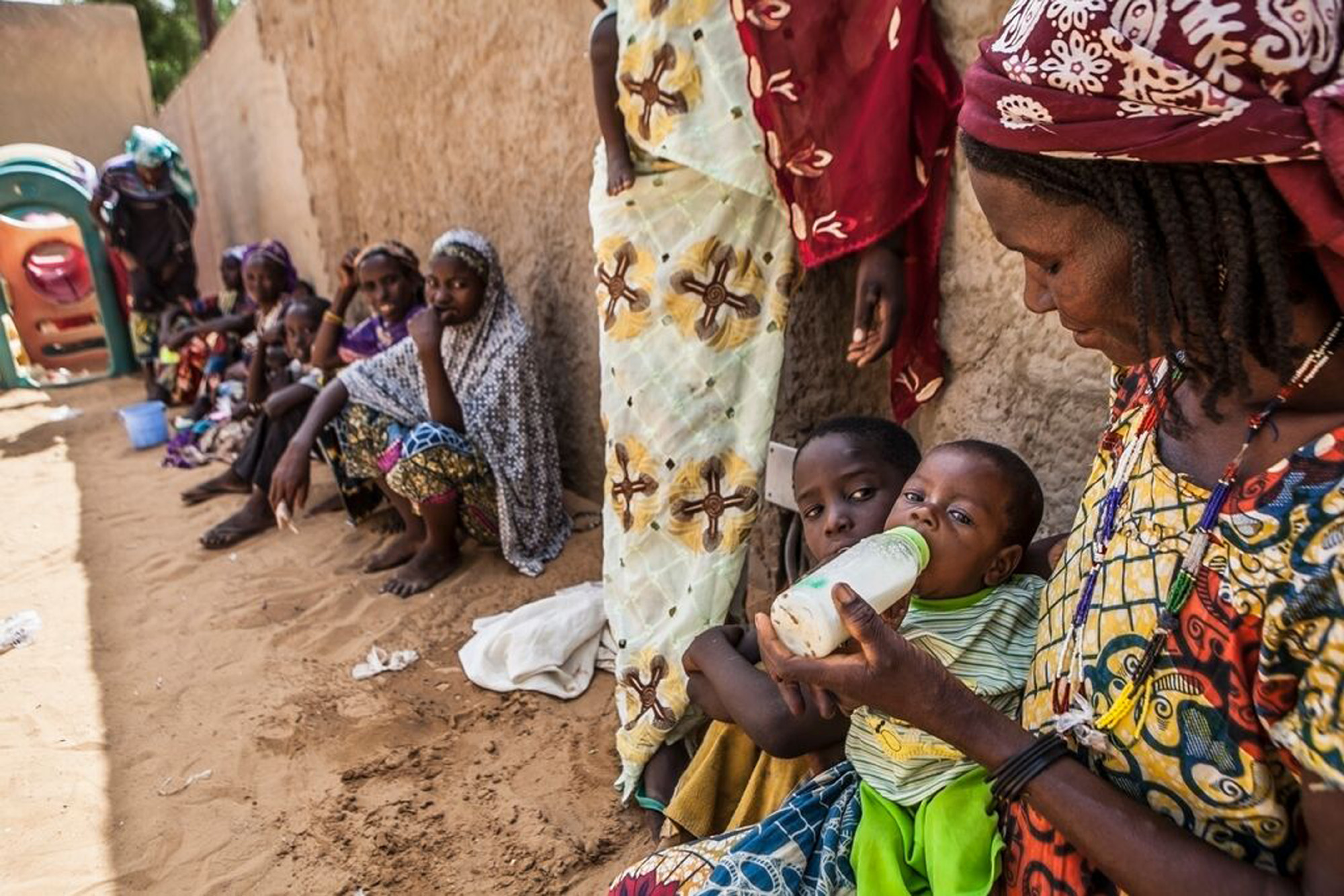
[SLIDESHOW=41130,41131]EDITOR’S NOTE: On Global Hunger Sunday, Oct. 11, Southern Baptist congregations will address the hunger crisis across North America and around the world by receiving special offerings. Donations received are channeled through Global Hunger Relief, which uses 100 percent of each gift to meet hunger needs.
WEST AFRICA (BP) — Whipping desert winds fill the air with dust, which settles on the clinic’s metal gate, muting its deep maroon color. A clinic worker opens the gate, and two grandparents step into the clinic with their 2-month-old grandson. Untying the wrap that holds the baby on her back, the grandmother slides him around in front and cradles him as she sits down. The baby’s grandfather pulls up a chair and sits next to them.
The emaciated baby lies motionless on his grandmother’s lap. The simple move from her back seems to have drained his energy. He closes his eyes. The only movement is the soft rise and fall of his chest he breathes in the dry, hot afternoon air.
A clinic worker sits next to the woman and assesses her grandson’s nutritional condition. A small dent on the top of his head indicates dehydration. The clinic worker gives the grandmother a bottle of formula to feed her grandson and listens as the woman tells their story.
The baby’s mother died four days earlier, and he has not eaten since. His grandparents tried feeding him cow’s milk and rice water — two of the only food options for babies in this part of Africa — but he was losing weight.
The grandparents took him to a clinic in a nearby village, hoping to find help. The workers there told them about this clinic, where families in need could receive baby formula provided by Global Hunger Relief (GHR), the Southern Baptist campaign to fight the worldwide hunger crisis.
Most babies brought to the clinic are orphans, or their mothers can no longer produce enough milk to feed them, because of their own malnutrition. After an assessment of the baby’s nutritional condition and needs, families are provided alternative resources to feed their babies. Families return each week for a new supply of formula.
[VIMEO=137846545]A simple formula distribution project like this saves lives in sub-Saharan Africa, where an estimated one in four persons is undernourished. Each week, the clinic distributes formula for 250 to 300 babies. The babies who get help in time quickly put on weight and soon are healthy and growing.
Fighting the Global Hunger crisis
But distributing infant formula is only one way GHR combats hunger. In 2014, more than 36,000 people around the world received food as part of community development efforts and more than 200,000 as part of disaster response. In addition, more than 433,000 water needs were met.
Worldwide, nearly 800 million people are undernourished. Each year, 3.1 million children under 5 die because of poor nutrition.
GHR is one of the most effective channels for donating toward the global hunger crisis. While most humanitarian organizations may keep from 30 percent to 70 percent for administrative overhead, GHR is able to devote 100 percent of resources directly to meeting hunger needs because Southern Baptist churches cover most administrative costs through their Cooperative Program giving.
GHR-funded projects meet crisis hunger needs in famine or disaster relief situations, but also catalyze long-term change in conditions of human suffering and extreme poverty that cause chronic hunger. Such projects may involve job training and vocational education, livestock and seeds, farm improvement, clean water, home reconstruction, medical care and hygiene education, etc.
In every case, the goal of GHR hunger projects is communities and lives transformed for today, tomorrow and forever.
On Oct. 11, churches can fight the global hunger crisis by participating in GHR’s Global Hunger Sunday. The GHR website (globalhungerrelief.com) offers resources to mobilize congregations and other small groups who want to help hungry souls and offer hope in the midst of suffering.
















